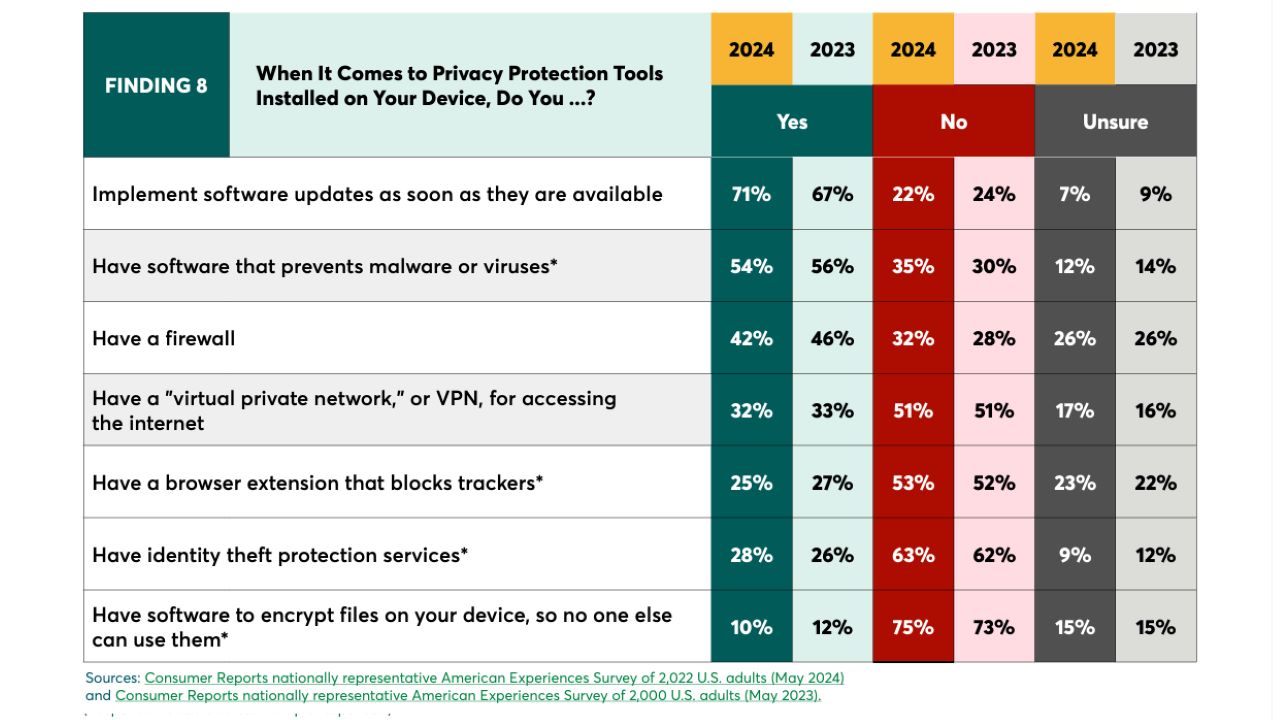
News, news analysis, and commentary on the latest trends in cybersecurity technology.
Despite Prevalence of Online Threats, Users Aren't Changing BehaviorDespite Prevalence of Online Threats, Users Aren't Changing Behavior
Consumers are victims of online scams and have their data stolen, but they are lagging on adopting security tools to protect themselves.

Consumers are aware that their information can be stolen by cybercriminals and that they are vulnerable to attack. While many people are taking steps to improve their cybersecurity online, the pace they are adopting security tools remains low, according to the latest Consumer Cyber Readiness Report from Consumer Reports.
Nearly half of the respondents of a recent Consumer Reports survey on digital scams and consumer cyber readiness say they have been personally targeted by an online scam in the past year, but they don't seem to be taking any specific steps to reduce their exposure to threats or to shore up their defenses. In fact, consumer behavior remains largely unchanged from 2023 to 2024, the report found.
Despite the long list of organizations that have been breached and personal information stolen over the last few years, just 28% of respondents say they have identity theft protection services. This is a worryingly low number considering breached organizations offer identity theft protection for free.
Just 54% of consumers said they have software to block or remove malware and viruses on the personal electronic device they use the most, which is a 2% decline from the 56% who said they had such software in 2023. Less than half (42%) said they have a firewall installed on their device, but what's worrying is that a little over a quarter of respondents (26%) are not sure if a firewall is installed on their device. This is also another decline from last year, as 46% claimed to have a firewall in 2023.
Around 7 in 10 consumers (71%) said they apply software updates on their personal device as soon as the updates are available, which is a slight increase from last year's 67%.
"Staying updated is the simplest and most effective step consumers can take to safeguard their digital lives," the report quotes Tarah Wheeler, CEO of Red Queen Dynamics. "It's encouraging to see more Americans prioritizing this essential aspect of cybersecurity."
While users are generally more keen on keeping devices updated, only 10% are using encryption software on devices to keep files protected. Three-quarters of respondents said they do not, and 15% weren’t sure if they did or didn’t.
On the privacy front, things weren't much better. Nearly a quarter of respondents aren’t sure if they have browser extensions that block trackers. About a third of respondents say they do use a VPN for accessing the internet, but 17% were not sure if they do or don't.
This year's Consumer Cyber Readiness Report from Consumer Reports is based on a survey of about 4,000 people.
About the Author
You May Also Like

